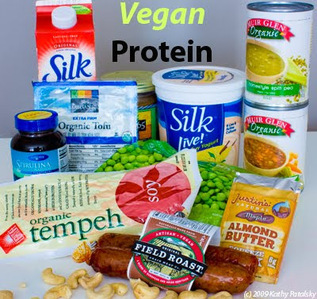|
First off, let me give you examples of foods that are considered protein. Lean meats, eggs, protein supplements, cottage cheese, and some Greek yogurts. That’s it! Notice I did not list nuts, cheese, peanut butter or beans. Reason being, they are predominantly either carbs or fat. It does not mean these foods are bad, just that they have been labeled protein foods for marketing purposes. Here lies the problem with lack of understanding which foods are considered protein. The companies that make products like peanut butter will say “good source of protein!” leading you to think you are getting enough protein by eating a peanut butter and jelly sandwich. The reality is that a peanut butter and jelly sandwich is 43% fat, 41% carbs, and only 16% protein. It has 12 grams of protein which is not adequate, especially if you count on it being one of your major protein meals. What foods are protein? Meats. The leaner the meat, the higher percentage of protein it has. For example, a rib eye (lean portion only) steak has about 65% calories from protein where turkey breast has about 90% calories from protein. Higher fat meats will have considerably less protein. Bacon has only 27% calories from protein and sausage only 23%. Lean meats are the best choices for a quality protein source. Eggs are a good quality protein, but also have a significant amount of fat (40% protein). Choose lean meats for your protein sources like skinless turkey and chicken, lean beef, lean pork, or other lean meats. Meatless options are protein powder, cottage cheese, some Greek yogurts, and eggs.  All inferior forms of protein with considerable amounts of carbs or fat All inferior forms of protein with considerable amounts of carbs or fat What’s not Protein? Nuts Nuts are categorized as a fat and yes, it does have a little protein. Almonds for example contain 80% fat, 5% carbs, and 15% protein. They are a great food and have good fats in them, but don’t look towards nuts if you are seeking protein. Beans Beans are more of a complex carb than anything else. They are 72% carbs, 4% Fat, and 24% protein. A cup of beans will yield about 15 grams of protein. Not bad, but that protein comes with 44 grams of carbs. Regular Yogurt There is a major difference between regular yogurt and Greek yogurt. Regular yogurt is mostly carbs with 74% calories from carbs, 9% fat, and 17% protein. Greek yogurt has more protein with 35%-70% of its calories coming from protein. If you choose to use this as a main source of protein, pay attention to the nutritional content as they can vary greatly. I suggest buying the plain variety to cut out the extra sugar. Cheese Cheese is mostly fat and typically a food you want to stay away from for many reasons. Cheese can vary in nutritional content. Regular cheddar cheese is 74% fat, 1% carbs 25% protein. One could argue to go with a fat free variety which would be about 60% protein yielding about 7 grams per ounce, but these highly processed so called cheeses are subject to additives and high fructose corn syrup making them anything but a health food. Soy products Soy may or may not be good for you depending on the source of information. In general, research suggests that the effects of soy in the human body needs to be further studied. Soy is an option for protein and it is in fact a complete protein meaning that it contains all the essential amino acids. Personally, I have my doubts on soy being a healthy option and choose to stay clear of it. Many people are confused on real protein content because of the “high protein” marketing on food labels. It is best to get your protein from lean meats. If you are a vegetarian, then go with eggs or certain dairy products. If vegan, then one would have to plan their meals strategically to reach minimal protein requirements. Be sure to have a quality protein source with almost every meal. 744 San Antonio Rd. Suite #2 Palo Alto, CA 94303: Breakthrough Personal Training. Expert personal trainer serving the Palo Alto, Los Altos, Mountain View, and Menlo Park area in a private personal training studio setting. Protein sources, nutrition, peanut butter is not a protein. Weight loss, fat loss specialist, post injury rehabilitation, optimal health, muscle gain, Biosignature, and nutrition services.
0 Comments
Leave a Reply. |
AuthorJerry Yuhara, CPT, CSCS, CMT #75123 Categories
All
JY Fitness
299 California Ave, Suite 120 Palo Alto, CA 94306 650-485-1240 contact@jyfit.com Contact Copyright JY Fitness 2024, All Rights Reserved. Find us on Nextdoor.com
|